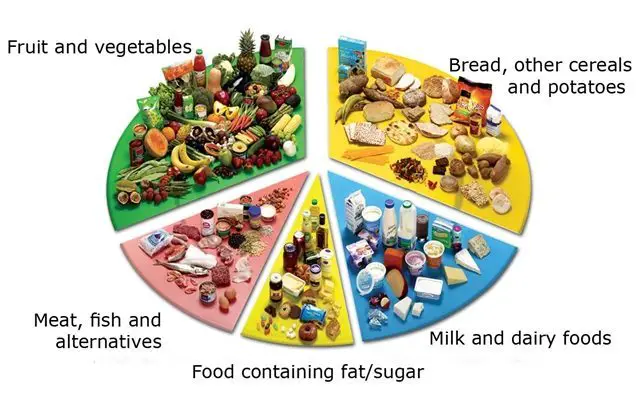There are different myths that we have heard as soon as we as woman develop and start menstruating all that, linked to avoiding those terrible cramps that literally knock us out of bed and prevent us from doing with normality, the daily tasks that we intend to do.
Women, at some point in our lives, have heard our grandmother say “do not get too cold” or “do not eat so much candy” when the menstrual period comes each month. Statistics show that 1 out of 3 women have menstrual disorders related to hormonal balance. Menstrual pains or dysmenorrhea can be caused by some disease of the pelvic organs, hormonal imbalances, and bad eating habits, about 60% of women suffer from them. As happens with the seasons, our nutritional requirements change, depending on the phase of the menstrual cycle in which we are. Our body may be talking to us and we do not even pay attention to it.

There are many cases of irregularities in the menstrual cycle, due to nutrient deficiencies. We must clarify that there are 2 large groups: the macronutrients, where the proteins, fats, and carbohydrates are, and that are needed in large quantities and the micronutrients, where the minerals and vitamins are. Both groups are essential for the proper functioning of our system.
Digestive problems, chronic fatigue, depression, fibromyalgia and internal pains, are strictly linked to food. Many times, whether due to time limiting factors and daily activities, we consume highly processed and harmful fast food, without knowing what it causes to us.
In premenstrual syndrome, the same thing happens, although not all the cycles of our life are the same since there are months that we are more affected than others, our nutrition is of vital importance.
A normal menstrual cycle has an average duration between 27 and 30 days, which is therefore divided into 4 phases, of approximately seven days each: Follicular or pre-ovulatory phase, ovulatory phase, luteal phase, and menstruation phase. During ovulation we are more active and more receptive, being the stage with the most creative potential of our cycle, while in the luteal phase, we can feel more connection with our inside.
The period is a moment of renewal and freedom, a phase where we are reflective and introverted, where our emotions are only skin deep.
Menstrual Phases

Follicular Phase. It starts the first day after ending the last day of bleeding. At this time, large amounts of estrogen are produced, which help develop the follicles, the hormones stabilize at their ideal levels. We have better sensitivity to insulin and it is the time of greatest physical activity, so, we can take advantage of cardiovascular and resistance exercises. It is recommended to consume foods that help us metabolize estrogen better and increase hydration, such as fresh green leafy vegetables: spinach, Swiss chard, lettuce and foods rich in iron and calcium such as whole grains and dairy. You must not miss the fresh fruits!
Ovulatory Phase. It begins more or less, 2 weeks after the bleeding passes, at this time, it is advisable to consume foods that help to expel the estrogen. Normally, it is the phase in which we see ourselves feel more beautiful and confident, our self-esteem rises, we have greater gastronomic delight, we can take advantage of eating well-prepared dishes and heavier foods such as fish, meat, cheese, lobster, and seafood; also the hormonal changes, help us to develop more muscles, doing sports, so in these days, we must ensure our consumption of good proteins. It is advisable to increase the intake of fiber and antioxidants, such as fruits and vegetables with high sulfur content, like broccoli, cauliflower, and cabbage.
Luteal Phase. It starts right after ovulation and extends until the day before the menstrual period begins, the next month. Behind the uncontrolled estrogen, progesterone appears, then later, both hormones fall sharply, causing an alteration that impacts on mood; the activities of the body slow down its rhythm, including its intestinal activity, thirst increases and the symptoms of premenstrual syndrome become evident. This is when it increases our desire to eat sweets and fast food; However, overdoing it may result in more symptoms associated with menstrual discomfort.
Eating should be light and easy to digest, with high fiber content and a large amount of protein. The idea is to avoid carbohydrates, highly processed foods, fat, and alcohol. Rather involve in your diet whole grains, lean meats, brown rice, barley, legumes and green leafy vegetables that provide calcium and magnesium, without forgetting to consume enough water at this stage. Look for foods rich in vitamins “B” that helps the brain to produce serotonin and thus control mood changes.

Menstruation Phase. With the onset of bleeding, hormone levels decrease, these are the days of greater emotional activity, causes us to rest more, we have body exhaustion and lack of appetite. Since we need to stabilize emotions, make sure to consume minerals such as magnesium, also foods such as spinach, hazelnuts, almonds, peanuts, pistachios, chickpeas, whole wheat and bitter chocolate without sugar. In addition, it is important to increase the consumption of foods rich in natural fat such as salmon and avocado.
Always remember “Food and lifestyle are the keys to maintaining good health”.
